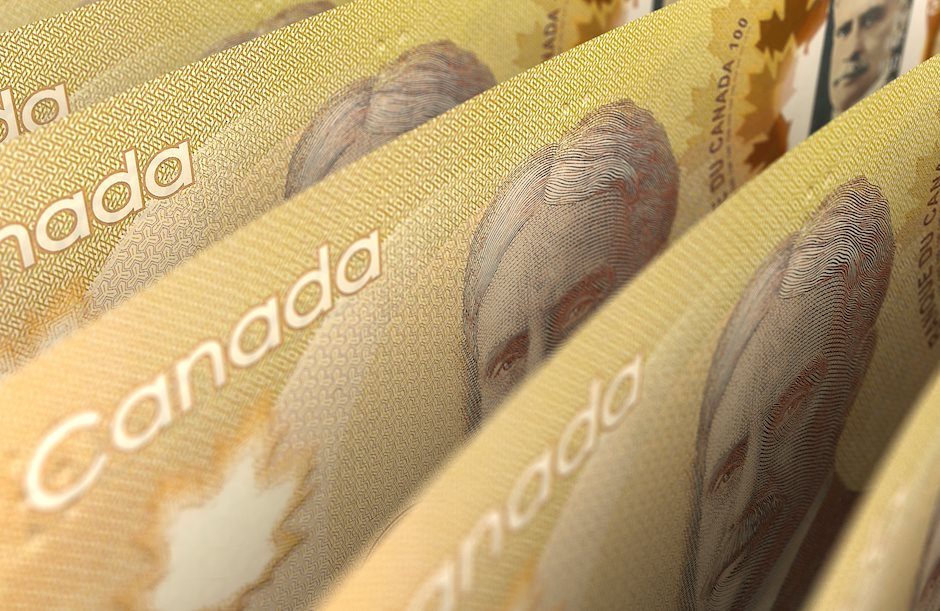Canadian Dollar climbs into higher ground as markets move out of the way
- The Canadian Dollar gained ground on Tuesday as markets pivot out of Greenback.
- Bank of Canada Governor Macklem reaffirmed BoC’s stance.
- Markets are churning on rising Fed rate cut expectations.

The Canadian Dollar (CAD) gained ground on Tuesday, testing multi-month highs against the softening Greenback. Markets are pivoting into a USD-short stance on rising expectations of future Fed rate cuts, helping to give the CAD a leg up.
Canada remains largely absent from the economic calendar this week, but an appearance from Bank of Canada (BoC) Governor Tiff Macklem helped to provide a springboard for the Canadian Dollar by reminding markets that the BoC is committed to carefully observing deteriorating market conditions and giving a casual head-nod to credit-crunched Canadians.
Daily digest market movers
- The Canadian Dollar rose seven-tenths of one percent against the Greenback on Tuesday, and is testing multi-month highs.
- US consumer confidence slumped into the low side, and US consumers continue to see accelerating inflation looking out over the next 12 months.
- Despite the uptick in consumer inflation expectations, markets have piled into bets of a follow-up 50 bps rate cut from the Federal Reserve (Fed) in November.
- BoC’s Macklem: Bank of Canada is pleased to see inflation at 2%, now we need to stick the landing.
- More Macklem: There is a notable increase in financial stress among borrowers without a mortgage, mainly renters.
Canadian Dollar price forecast
The Greenback’s Tuesday pullback has given the Canadian Dollar a chance to regain ground, sending the USD/CAD pair down into 1.3440. The pair has tested a fresh six-month low, and bidders have been pushed back after a technical rejection from the 200-day Exponential Moving Average (EMA) near the 1.3600 handle.
Canadian Dollar daily chart

Canadian Dollar FAQs
The key factors driving the Canadian Dollar (CAD) are the level of interest rates set by the Bank of Canada (BoC), the price of Oil, Canada’s largest export, the health of its economy, inflation and the Trade Balance, which is the difference between the value of Canada’s exports versus its imports. Other factors include market sentiment – whether investors are taking on more risky assets (risk-on) or seeking safe-havens (risk-off) – with risk-on being CAD-positive. As its largest trading partner, the health of the US economy is also a key factor influencing the Canadian Dollar.
The Bank of Canada (BoC) has a significant influence on the Canadian Dollar by setting the level of interest rates that banks can lend to one another. This influences the level of interest rates for everyone. The main goal of the BoC is to maintain inflation at 1-3% by adjusting interest rates up or down. Relatively higher interest rates tend to be positive for the CAD. The Bank of Canada can also use quantitative easing and tightening to influence credit conditions, with the former CAD-negative and the latter CAD-positive.
The price of Oil is a key factor impacting the value of the Canadian Dollar. Petroleum is Canada’s biggest export, so Oil price tends to have an immediate impact on the CAD value. Generally, if Oil price rises CAD also goes up, as aggregate demand for the currency increases. The opposite is the case if the price of Oil falls. Higher Oil prices also tend to result in a greater likelihood of a positive Trade Balance, which is also supportive of the CAD.
While inflation had always traditionally been thought of as a negative factor for a currency since it lowers the value of money, the opposite has actually been the case in modern times with the relaxation of cross-border capital controls. Higher inflation tends to lead central banks to put up interest rates which attracts more capital inflows from global investors seeking a lucrative place to keep their money. This increases demand for the local currency, which in Canada’s case is the Canadian Dollar.
Macroeconomic data releases gauge the health of the economy and can have an impact on the Canadian Dollar. Indicators such as GDP, Manufacturing and Services PMIs, employment, and consumer sentiment surveys can all influence the direction of the CAD. A strong economy is good for the Canadian Dollar. Not only does it attract more foreign investment but it may encourage the Bank of Canada to put up interest rates, leading to a stronger currency. If economic data is weak, however, the CAD is likely to fall.
Author

Joshua Gibson
FXStreet
Joshua joins the FXStreet team as an Economics and Finance double major from Vancouver Island University with twelve years' experience as an independent trader focusing on technical analysis.

















